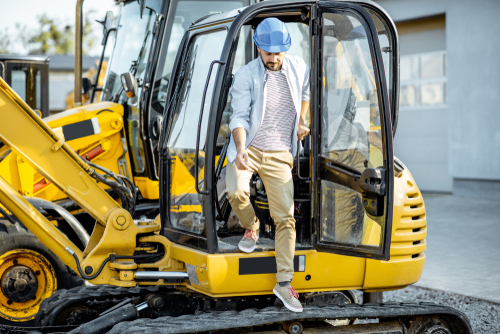How to Decide if You Should Rent, Buy, or Lease Equipment

When it comes to acquiring heavy equipment for your business, whether for construction, agriculture, or any other industry, one crucial decision is whether you should rent, buy, or lease the equipment. Each option comes with its own advantages and considerations, and understanding which one is most suitable for your specific needs is vital for making the right decision. In this article, we will discuss the factors that can help you determine whether you should rent, buy, or lease heavy equipment.
Cost Considerations:
One of the primary factors influencing your decision is cost. Renting heavy equipment typically involves fixed rental fees, making it a predictable expense that can be factored into your project’s budget. Renting eliminates the need for a large upfront investment, which can be a significant advantage for companies with limited capital.
On the other hand, when buying heavy equipment, you will need to consider the purchase price, maintenance costs, insurance, and potential depreciation. Owning equipment offers a long-term investment that can be beneficial if you frequently require the machinery or if it is critical to your business operations.
Leasing heavy equipment often combines the benefits of renting and buying. Leasing allows you to acquire the equipment without the large upfront cost, similar to renting. However, lease payments are typically higher than rental fees since you gain more rights to use the equipment over a more extended period. Additionally, leasing can provide you with the option to purchase the equipment at the end of the lease term, although this is not always applicable depending on the agreement.
Flexibility and Utilization:
Another crucial consideration when deciding whether to rent, buy, or lease heavy equipment is the flexibility you require and the level of equipment utilization. If your need for specific machinery is sporadic or seasonal, renting becomes an attractive option. Renting provides flexibility, allowing you to access different types of equipment as needed and reducing the risk of owning machinery that may remain idle for extended periods.
However, if you have a consistent and continuous need for specific equipment, buying may be a more viable option. Owning equipment grants you greater control and ensures availability whenever required. This is particularly beneficial if you foresee long-term usage and can maximize the utilization of the equipment, thus optimizing your investment.
Leasing also offers flexibility, but to a different extent. Leasing can allow you to acquire the latest equipment models without committing to a long-term ownership. This can be advantageous if you want to stay up-to-date with technological advancements or if you require specialized equipment for specific projects.
Maintenance and Repairs:
Maintenance and repair costs play a significant role in the decision-making process. When renting equipment, the rental company is usually responsible for maintaining and repairing the machinery. This can be a significant relief for businesses as it eliminates the need for in-house maintenance staff. Rental companies often provide well-maintained equipment, ensuring optimal performance and reducing the risk of unexpected breakdowns.
When buying equipment, maintenance and repair costs become your responsibility. It is crucial to consider the long-term costs associated with servicing and repairing the machinery, especially if your equipment will undergo extensive use. However, owning the equipment provides you the freedom to choose your own maintenance schedule and ensures that the equipment is tailored to your specific needs.
Leasing, similar to renting, often includes maintenance and repairs as part of the lease agreement. This means you are not directly responsible for these costs. However, it’s essential to thoroughly review the lease terms to understand the extent of these obligations and determine if they align with your business requirements.
Summary:
Deciding whether to rent, buy, or lease heavy equipment necessitates careful evaluation of your unique circumstances, including cost considerations, flexibility, equipment utilization, and maintenance needs. By weighing these factors, you can determine the most suitable option that aligns with your business goals and optimizes your investment. Whether you choose to rent, buy, or lease heavy equipment, always conduct thorough research, seek advice from industry experts, and consider the long-term implications to ensure a well-informed decision.
Need a Equipment Rental Company in Monroe, LA?
Welcome to Ram Rent-All, Inc. If you are looking for quality equipment, look no further. We are your one-stop solution for all of your equipment rental needs. We have a huge selection of equipment to choose from, from lawn and garden tools to construction necessities. Options include air compressors, Bobcats, forklifts, generators, tractors, water pumps, mixers, light towers, pressure washers, and more! If you’re going to do a job yourself, you want the best tools, and we can supply them to you at a reasonable price, without the need for costly contractors or direct purchases. Call us today!
